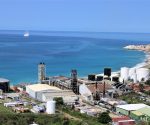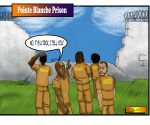Independence

By Hilbert Haar
José Lake Jr. and Dr. Rhoda Arrindell are two prominent proponents of independence for St. Maarten. You have to admire and respect the efforts they tirelessly devote to this cause. The question is of course whether independence is good or bad for the people who live here – and that’s where the facts become fuzzy.
There is no doubt in my mind that people are entitled to choose their own destiny. Independence or no independence, it does not really matter. If the people want to go one way or the other should not be an issue.
In this sense, it is good that there finally seems to be some movement in the direction of a constitutional referendum. This is where voters will express what they want. The problem: how on earth are citizens who are used to sell their vote to the highest bidder going to make an informed choice?
Arrindell favors putting all the facts on the table. That’s how a proper referendum is supposed to work: unbiased and complete information.
What is going to happen after St. Maarten becomes independent? What happens if another major hurricane hits the island and we have to borrow money on the international financial markets? What is going to happen to my passport? What is the value of a St. Maarten passport? Will foreign investors still find St. Maarten attractive? Or will the investors that are already here flee the country? Will St. Maarten become a second Haiti and if so, is that what we really want?
Arrindell already floated a somewhat misleading idea during her interview on a local talk show by stating that people who want to can simply keep their Dutch passport after independence.
This is only partially correct. This only applies to citizens who were born in St. Maarten and who live here. Others, who voluntarily take a different nationality, will lose their Dutch passport and nationality. Is that good or bad? That, again, is up to those Dutch passport holders to decide; I cannot, and will not, speak for them even though someone seems to whisper it’s your funeral in my ear.
There is obviously also the matter of national security. St. Maarten does not have an army and it pays for Dutch coast guard services. I have no idea how vulnerable the country is to a hostile takeover by a foreign power but I would think that there ought to be some provision in place to prevent those powers from coming in. Just saying.
In the 2000 constitutional referendum, just 14.44 percent of the electorate voted in favor of independence and a vast majority of close to 70 percent wanted to become what we are now – an autonomous country in the Kingdom of the Netherlands. Should it therefore always stay that way? Of course not. That referendum took place more than twenty years ago.
Perceptions change. Ideas change. And if a majority of the people votes in the next referendum in favor of independence I can only say: go for it. I wish the people who live here a lot of success and above all courage.
It seems to me that history is repeating itself at lightning speed. Obtaining autonomy freed St. Maarten from control by Curacao, but that control is now partially in the hands of the Board financial supervision (Cft), the department of Kingdom Relations at the Dutch Ministry of Home Affairs and the Kingdom Council of Ministers.
We have escaped the establishment of COHO, the Caribbean Authority for Reform and Development, but its replacement, the so-called country package and its associated mutual agreement look suspiciously the same. Same dog, different hat.
And both these changes – getting out of the Netherlands Antilles and submitting to reform dished out in a country package – are said to have a very noble objective: to improve the livelihood of the people who live here.
Thirteen years of autonomy show us that poverty and political instability are here to stay. In other words: becoming autonomous has done bugger all to improve the lives of our citizens.
The jury is still out when it comes to the execution of the country package, but the result is predictable: political resistance and sorely needed reforms that are becoming a reality too slow – or no reality at all.
And then there is this: St. Maarten’s national debt amounts this year to 1,252 million guilders – that’s one and a quarter billion for you. It’s close to $700 million and it represents 52 percent of gross domestic product. According to the Cft, St. Maarten is paying off 13 million guilders on outstanding loans this year. At that pace, it will take almost a hundred years to become debt free and that will only happen if successive generations manage to not only present but also stick to a budget that shows no deficits at all. Saying that St. Maarten finds itself in a deep financial quandary sums it up nicely.
But of course, it is not possible to put a price on independence. That should not happen. But when it comes to choosing wisely, the electorate ought to be made aware of all consequences, also if they include higher taxes.
###
Related article:
Former Minister Rhoda Arrindell is looking forward to independence-referendum
The Independence articles

























